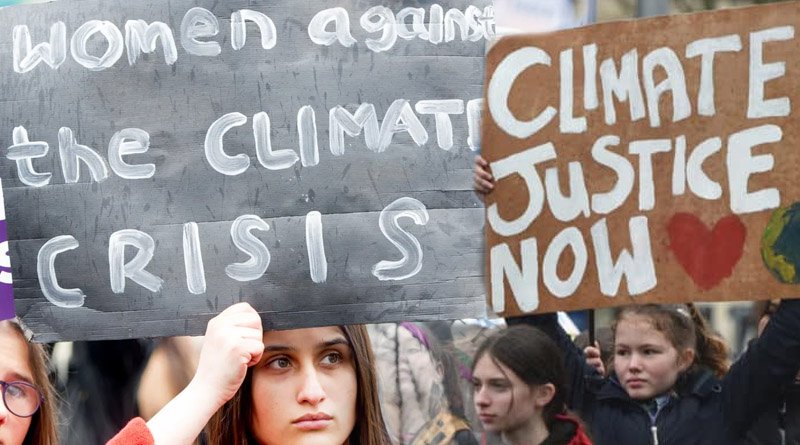Secretary’s Office of Global Women’s Issues visited Slovenia, Austria, and Hungary to talk about how women and girls can be change-makers and leaders in the field of climate change.

The Innovation Station, a programme of the Secretary’s Office of Global Women’s Issues (S/GWI), supports the development of innovative, replicable solutions to climate-related problems in local communities by women and girls.
The initiative boasts a growing network of women and girls who are putting their solutions into practise and exchanging best practises all over the world, in addition to a virtual event series, podcast, and newsletter.
While converting to clean energy, Central Europe is experiencing an increase in heat stress, wildfire risk, and other effects of climate change. The Secretary’s Office of Global Women’s Issues visited Slovenia, Austria, and Hungary to talk about how women and girls can be change-makers and leaders in the field of climate change.
I was interested in how scientific institutions in the region are addressing barriers to women’s and girls’ entry into STEM careers, especially those related to tackling climate change. I learned about the Institute Jozef Stefan’s Athena project in Slovenia and the role of the Innovation Station in building networks for women and girl innovators. At the Lake Balaton Limnological Research Institute, I heard about efforts to combine science and art to spark public interest in the environmental challenges facing Hungary’s largest lake.
IIASA’s prioritization of interdisciplinary research highlighted the gender-climate nexus, and I was able to reflect on my own experiences as a woman scientist during an event at the Austrian Academy of Sciences. The event highlighted systemic and institutional barriers to women’s and girls’ advancement in STEM, while also highlighting the role of men and boys in facilitating change.
Engaging with students and learning about their STEM interests can help identify barriers to entry. A roundtable discussion at Semmelweis University in Budapest discussed the role of social media and other tools in sharing information about climate, environmental, and other STEM-related global challenges.
At the University of Pannonia, I highlighted the role of women and girls in building resilience and studied replicable best practices from members of the Innovation Station network.
Turning scientific and technological developments into profitable ventures was another subject that students found interesting. This is something that will become more and more important as the green and blue economies grow and as industries change to more sustainable practises.
I met several Academy for Women Entrepreneurs programme alumni at an event sponsored by CEED Slovenia, where I also spoke with other business owners from all over Ljubljana about the importance of the private sector in addressing sustainability issues, even if a company’s goods or services have nothing to do with climate change.
While many of the people and organisations I encountered in Central Europe were unaware of the connection between gender and climate, everyone recognised the value of including women and girls in climate action and decision-making. After all, if half of the population is excluded from the development of climate solutions, they are unlikely to be successful.
I made a point of highlighting how society as a whole benefits from the climate solutions developed by women and girls, as well as how best practises discovered in one community can help other communities adapt to and mitigate climate challenges more successfully.
Understanding local contexts that affect women’s and girls’ success as climate leaders was crucial in all of my engagements. I identified opportunities in the creative industries, rural entrepreneurship, sustainable tourism, and broader circular economies.
As a result, when I got back to Washington, I set up 30 contacts between Slovene, Hungarian, and Austrian organisations and the women and girls in our network at Innovation Station who are experts in these opportunity areas.
Building relationships makes it easier for people to share concepts and methods that enable women and girls to fulfil their potential as leaders in the field of climate change, including as researchers and business owners in the STEM fields.
